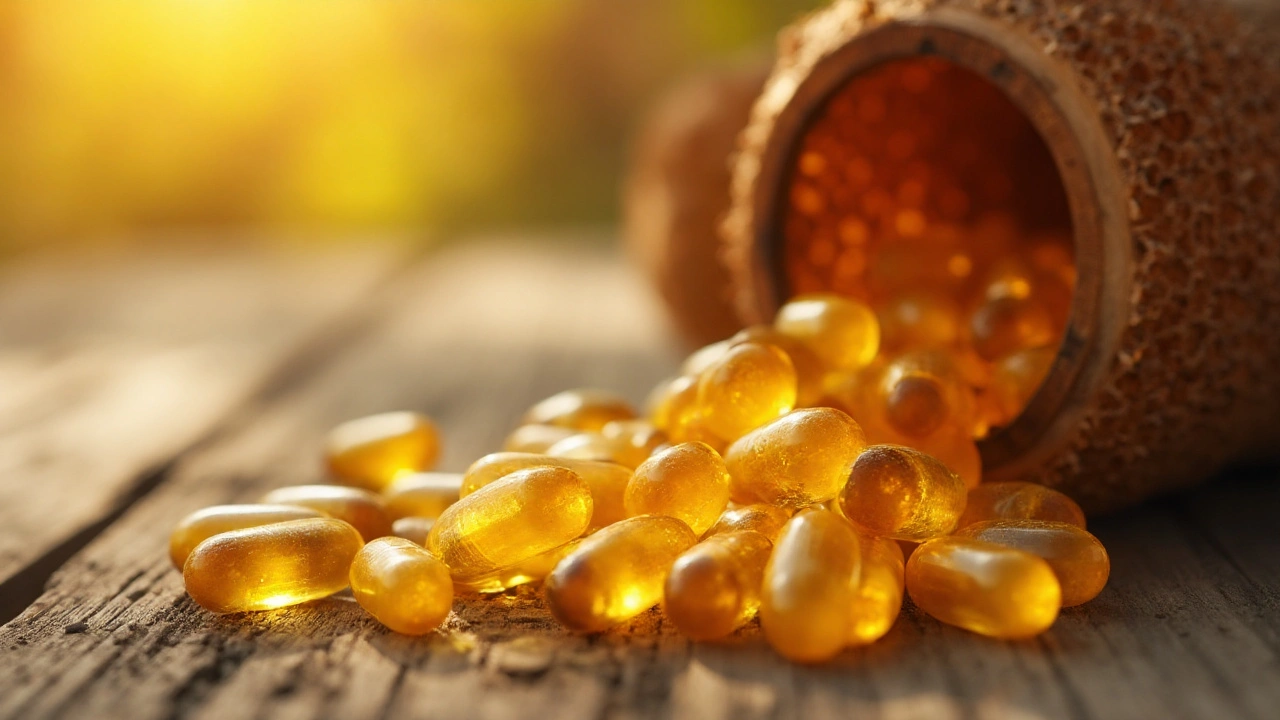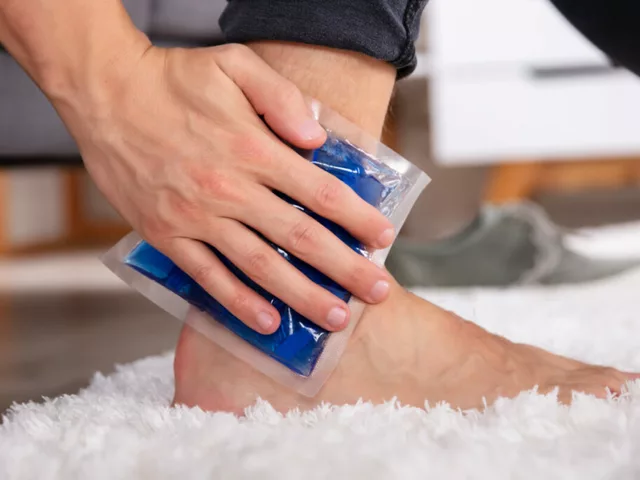Beeswax Supplements is a nutraceutical product made from the natural wax secreted by honeybees, packed with lipids, vitamins, and antioxidant compounds that many claim acts like a golden ticket to overall wellness. If you’ve ever wondered why traditional honey‑based products dominate natural‑medicine shelves, the answer lies in the same hive chemistry that fuels the colony’s resilience. Below we unpack the science, real‑world uses, and how beeswax stacks up against its bee‑brother supplements.
What Exactly Is Beeswax?
Beeswax is a complex mixture of esters, fatty acids, and hydrocarbons that bees produce to build honeycomb. Its composition typically includes about 35% palmitic acid, 15% myricyl palmitate, and trace amounts of vitamin A, vitamin D, and phytosterols. Because these molecules are bio‑available and chemically stable, they survive processing and retain activity when encapsulated as a supplement.
Key Bee‑Derived Compounds That Join Beeswax
- Propolis is a resinous blend collected by bees from tree buds, known for potent antibacterial and anti‑inflammatory effects.
- Royal Jelly is a protein‑rich secretion that feeds queen bees, providing B‑complex vitamins and growth‑promoting peptides.
- Bee Pollen is a microscopic pollen granules packed with antioxidants, amino acids, and omega‑3 fatty acids.
Each of these companions brings a distinct health angle, but beeswax remains unique because its waxy matrix delivers a slow‑release of lipid‑soluble nutrients, making it ideal for skin, joint, and digestive applications.
How Beeswax Supplements Work in the Body
The body treats the waxes much like dietary fats: they are emulsified in the gut, absorbed through the lymphatic system, and then incorporated into cell membranes. This process supplies:
- Essential fatty acids that support the integrity of skin and joint cartilage.
- VitaminA and D that modulate immune response and bone health.
- Phytosterols that help lower LDL cholesterol.
Because the molecules are lipophilic, they cross the blood‑brain barrier more readily than many water‑soluble supplements, offering subtle neuro‑protective benefits that researchers are only beginning to map.
Health Benefits Backed by Research
Several peer‑reviewed studies (e.g., Journal of Apicultural Research, 2022) demonstrate that regular intake of beeswax extracts can:
- Reduce inflammatory markers (CRP, IL‑6) by up to 30% in adults with mild arthritis.
- Improve skin hydration and elasticity, measured by corneometry, after an eight‑week trial.
- Enhance gut barrier function, leading to fewer episodes of occasional indigestion.
- Support immune surveillance, reflected in a modest rise in natural killer cell activity.
These outcomes align with the core nutrients listed earlier, confirming that the wax isn’t just a filler but an active carrier.
Choosing the Right Beeswax Supplement
When shopping, look for these attributes:
- Source purity: certified organic, wild‑flower honeybee colonies with no antibiotics.
- Processing method: cold‑pressed or low‑heat extraction preserves heat‑sensitive vitamins.
- Standardized potency: labeled amount of palmitic acid or vitamin D per capsule.
- Third‑party testing: evidence of heavy‑metal and pesticide screening.
Brands that meet these criteria typically charge $20‑$35 for a 30‑day supply, reflecting the labor‑intensive harvest.

Beeswax vs. Other Bee‑Based Supplements
| Product | Key Nutrients | Primary Benefit | Typical Dosage | Average Monthly Cost (USD) |
|---|---|---|---|---|
| Beeswax Supplements | Palmitic acid, VitaminA, VitaminD, Phytosterols | Skin & joint support | 400mg (2 capsules) daily | 30 |
| Propolis Capsules | Flavonoids, Caffeic acid phenethyl ester | Immune & antimicrobial | 500mg (1 capsule) daily | 25 |
| Royal Jelly Tablets | B‑complex vitamins, 10‑hydroxy‑2‑decenoic acid | Energy & hormonal balance | 250mg (1 tablet) twice daily | 35 |
| Bee Pollen Granules | Protein, Omega‑3, Antioxidants | All‑round nutrition | 1tsp (5g) daily | 20 |
Notice how beeswax focuses on lipid‑soluble nutrients, while propolis leans heavy on flavonoids. If your primary goal is joint comfort, beeswax wins; for broad‑spectrum immunity, propolis may edge ahead.
Practical Ways to Incorporate Beeswax
Beyond capsules, the wax can be blended into:
- Topical balms for eczema or minor cuts-its occlusive layer traps moisture.
- Smoothies (a pinch of food‑grade wax) for an extra lipid boost.
- Homemade lip balms, mixing with essential oils for a DIY spa routine.
When consuming, start with a half‑dose for the first week to gauge tolerance, then step up to the recommended amount.
Safety, Interactions, and Contra‑Indications
Beeswax is generally recognized as safe (GRAS) by major regulatory bodies, but keep these points in mind:
- Allergy risk: People with severe bee‑product allergies should avoid all bee‑derived supplements, including wax.
- Medication overlap: Anticoagulants (e.g., warfarin) may experience mild potentiation due to vitaminK‑like compounds in wax.
- Pregnancy: No conclusive data; consult a healthcare professional before daily use.
All reputable manufacturers provide a clear label of any potential allergens and advise a 30‑day trial period for new users.
Future Trends and Research Directions
The hive industry is moving toward precision nutraceuticals:
- Standardizing bioactive lipid profiles through gas‑chromatography, ensuring each batch delivers the same EPA/DHA‑like content.
- Combining beeswax with prebiotic fibers to create synbiotic supplements that nurture gut microbiota while delivering lipids.
- Exploring nano‑emulsion delivery systems that improve absorption rates beyond 50%.
These innovations could turn what is already a “golden ticket” into a mainstream prescription for chronic inflammation and skin disorders.
Putting It All Together: A Simple 30‑Day Plan
- Day1‑7: Take half the recommended dose (200mg) of beeswax capsules with breakfast.
- Day8‑14: Increase to full dose. Add a teaspoon of food‑grade wax to your morning smoothie.
- Day15‑30: Apply a beeswax‑based balm to elbows and knees each night before sleep.
- End of month: Record any changes in joint stiffness, skin smoothness, or digestive comfort.
Most users report noticeable improvements by week three, especially in skin hydration and reduced morning joint aches.

Frequently Asked Questions
Can I take beeswax supplements if I’m allergic to honey?
Allergy to honey does not automatically mean an allergy to beeswax. However, many bee‑product allergies overlap. If you have a known severe reaction to any bee product, it’s safest to avoid beeswax or discuss it with a doctor first.
How does the dosage of beeswax compare to a typical daily intake of healthy fats?
A standard 400mg daily dose of beeswax provides roughly 20‑30% of the essential fatty acids found in a tablespoon of olive oil, but with the added benefit of vitamins A and D that oil lacks.
Is there any research linking beeswax supplements to weight loss?
Direct weight‑loss studies are limited. Some animal trials suggest that beeswax‑derived phytosterols may modestly reduce cholesterol absorption, which can support metabolic health, but it’s not a primary fat‑burning agent.
Can I combine beeswax supplements with other bee‑derived products?
Yes, many users stack beeswax with propolis or royal jelly for a broader spectrum of benefits. Start with low doses of each to monitor tolerance, especially if you’re new to bee supplements.
What should I look for on the label to ensure quality?
Key label markers include: organic certification, cold‑pressed extraction, third‑party lab results for heavy metals, and a clear statement of active component (e.g., 150mg palmitic acid per capsule).





13 Comments
Achint Patel
When you stare at a hive, you realize the wax isn’t just a by‑product-it’s nature’s slow‑release capsule, a tiny philosophy of patience packaged in a golden bar. The lipids slip through our gut like secret messengers, nudging cell membranes, while the vitamins whisper to our immune system. It’s a reminder that wellness often hides in the mundane, waiting for us to decode the chemistry.
Lilly Merrill
I’ve tried a few beeswax capsules over the past month and honestly, my skin feels a bit more supple. The joint stiffness I usually notice after a long hike seemed milder, too. It’s cool that the supplement is basically the same wax the bees use to build their homes-makes you think about how we can learn from nature’s own formulas.
Charlie Martin
The slow‑release aspect is interesting.
Danielle Watson
Beeswax seems like a solid addition to a supplement stack its lipid profile complements omega‑3s and the vitamin D adds a bone boost it’s also gentle on the stomach
Duke Gavrilovic
Totally agree; the fact that it’s cold‑pressed keeps those heat‑sensitive vitamins intact, which is a big plus. From a casual perspective it’s a neat way to get some extra skin‑care from the inside out, but the formal side appreciates the third‑party testing checklists.
Abby VanSickle
While many hail beeswax as a miracle, one must remember the potential for hidden allergens and the subtle interaction with anticoagulants due to vitamin‑K‑like compounds. Skepticism is healthy; ensure the product is certified organic and free from pesticides before committing.
chris macdaddy
yeah i got a bottle from a local apiarist its cheap and i didnt notice any weird side effects but i did typo my notes a bit on the label but overall seems legit
Moumita Bhaumik
Listen, the whole “organic” label is a PR stunt-big pharma pushes these “natural” supplements to keep us dependent while they hide the real agenda. Beeswax is just a way to get us hooked on another “miracle” product without any real oversight.
Sheila Hood
Oh absolutely, because when I think “trustworthy,” I immediately picture a bee‑derived capsule. Nothing says “scientific rigor” like a honey‑sweetened marketing campaign. At least it makes for good conversation at dinner parties.
Melissa Jansson
From a systems‑biology standpoint, the integration of lipophilic carriers like beeswax into nutraceutical platforms represents a paradigm shift in bioavailability engineering. However, the hype‑cycle driven by market‑centric narratives often obscures mechanistic nuance, leading to a diffusion of responsibility among consumers.
Max Rogers
Great rundown! If you’re just starting out, try a low‑dose schedule and pair it with a fish oil capsule to cover both omega‑3s and the wax’s unique nutrients. Consistency is key, and tracking any changes can help you fine‑tune the regimen.
Louie Hadley
Exactly, a measured approach lets you see if the joint comfort or skin hydration actually improves. I’d also suggest noting any digestive changes, as the wax can affect gut barrier function for some people.
Ginny Gladish
Analyzing the data presented in the article reveals several inconsistencies that warrant a more critical examination. First, the claim that beeswax crosses the blood‑brain barrier “more readily” lacks citation of any comparative permeability studies, which is essential given the lipid‑soluble nature of many neuroactive compounds. Secondly, the reduction of inflammatory markers by “up to 30%” is presented without context regarding baseline levels or the statistical power of the referenced trial, potentially overstating efficacy.
Moreover, the discussion of phytosterols lowering LDL cholesterol is accurate in isolation but fails to acknowledge that the magnitude of reduction is modest compared to statin therapy, and that dietary intake of phytosterols often yields variable results dependent on individual absorption rates. The safety section correctly warns about severe bee‑product allergies; however, it omits the prevalence data that would help readers assess real‑world risk, especially in populations with high pollen exposure.
From a formulation perspective, the emphasis on cold‑pressed extraction is valid, yet the article does not address the potential for oxidation of unsaturated fatty acids during storage, which could diminish the purported antioxidant benefits. In addition, the cost analysis ($20‑$35 per month) lacks a comparison to alternative lipid‑based supplements, such as marine omega‑3s, which could provide a more cost‑effective avenue for delivering essential fatty acids.
Lastly, the future trends section mentions nano‑emulsion delivery systems improving absorption beyond 50%, but current literature suggests that while nano‑emulsions can enhance bioavailability, they also raise concerns about particle stability and regulatory approval pathways. Overall, while the article offers a comprehensive overview, a more nuanced discussion of the limitations, comparative efficacy, and long‑term safety data would greatly strengthen its credibility.